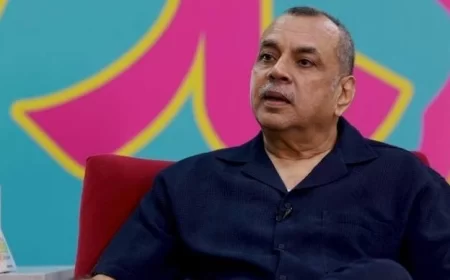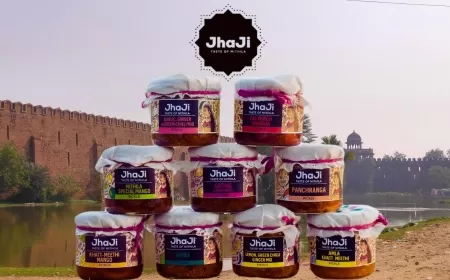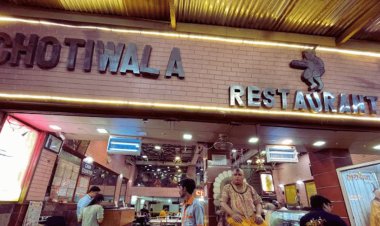Why Dunzo Struggled: A Simple Story of Big Lessons
Dunzo had it all – early success, big investors, and massive growth. So why did it struggle to survive? Read the full story of its highs and lows!

Dunzo's journey from a scrappy WhatsApp-based startup to a potential market leader in hyperlocal delivery and quick commerce is a compelling tale of ambition, growth, and adversity. Despite being an early entrant in the fast-commerce space, Dunzo's decline underscores the importance of strategic adaptability, financial prudence, and a sustainable growth model. This article dissects the factors that contributed to Dunzo's struggles and highlights the critical lessons for entrepreneurs and investors.
The Early Days: From Novel Idea to Hyperlocal Leader
Dunzo began humbly as a WhatsApp-based concierge service, founded by Kabeer Biswas. Initially handling everyday tasks, the service quickly gained traction. With early investments, including Sahil Kini of Lightrock, Dunzo transitioned into a structured hyperlocal delivery platform.
- Rapid Growth: By 2016, Dunzo was handling 15,000 orders monthly, scaling exponentially to 2 million orders by 2021—a 130x growth.
- Funding Success: Over its lifetime, Dunzo raised more than $400 million, securing investments from tech giants like Google and Reliance.
However, the aggressive pursuit of market dominance came at a steep cost. Dunzo's financials revealed an unsustainable burn rate, as it focused on user acquisition without achieving profitability.
The Quick Commerce Gamble: High Stakes, Heavy Losses
In 2021, Dunzo pivoted to the booming quick commerce sector, launching Dunzo Daily. While this segment promised high growth, it demanded substantial investments in infrastructure, including the costly Dark Store model.
-
Financial Strain:
- Dunzo invested heavily in building over 130 dark stores nationwide.
- Between FY2018 and FY2021, the company earned revenues of ₹88 crore but incurred losses exceeding ₹750 crore, reflecting a loss of ₹7.5 for every ₹1 earned.
-
Competition Heat:
- Dunzo entered a crowded market dominated by well-funded competitors like Swiggy Instamart, Zomato's Blinkit, and Tata's BigBasket.
- Despite pouring resources into quick commerce, Dunzo failed to secure significant market share, as top competitors controlled the lion's share of the market.
Reliance Investment: A Lifeline or a Liability?
In 2023, Dunzo received a $200 million investment from Reliance Industries, which took a 26% stake in the company. While this funding provided temporary relief, it came with strings attached:
- Control Issues: Reliance gained veto power over major decisions, limiting Dunzo's autonomy.
- Funding Challenges: Subsequent valuation disputes with Reliance hindered Dunzo's ability to secure additional funding.
The financial pressures culminated in Dunzo scaling back operations, shutting down quick commerce in most cities, and refocusing on its hyperlocal delivery roots.
Key Financial Metrics: A Tale of Imbalance
-
Revenue vs. Losses:
- FY2021 Revenue: ₹88 crore
- FY2021 Losses: ₹229 crore
- Burn Rate: Monthly expenses exceeded ₹100 crore, with reserves dwindling below ₹50 crore.
-
User Growth Amid Challenges:
- Active Users: Grew from 2.7 million in 2019 to 5.1 million in 2020.
- Financial Recovery: While revenue showed signs of growth in FY2021, operational costs far outpaced gains.
Strategic Missteps and Lessons Learned
Dunzo's challenges offer valuable insights into the pitfalls of scaling without a solid foundation:
-
Preserve Your Core USP:
- Dunzo's hyperlocal delivery expertise differentiated it from competitors. However, its pivot to quick commerce diluted its unique identity. Startups must safeguard their core competencies to maintain a competitive edge.
-
Profitability Before Expansion:
- Dunzo's aggressive expansion into quick commerce strained its finances. Establishing operational profitability in its core business could have provided a stable foundation for sustainable growth.
-
Investor Alignment:
- Reliance’s strategic involvement limited Dunzo’s decision-making flexibility. Aligning with investors who share the company's vision and long-term goals is crucial.
-
Operational Efficiency Matters:
- Quick commerce requires a robust infrastructure. Dunzo underestimated the logistical and financial complexities, leading to inefficiencies and mounting losses.
Current Status: On the Brink
Dunzo has scaled back operations to focus on hyperlocal delivery in Bengaluru. However, its financial future remains precarious:
- Burn Rate: ₹100 crore per month
- Remaining Reserves: Less than ₹50 crore
- Survival Plan: Without immediate funding, the company faces imminent closure.
The Road Ahead: Phoenix or Footnote?
Whether Dunzo can rise from the ashes depends on its ability to pivot strategically, secure funding, and rebuild its operational efficiency. Its story serves as a cautionary tale for startups navigating competitive markets:
- Focus on Fundamentals: Growth should not come at the cost of sustainability.
- Adapt Strategically: Startups must be agile, but not at the expense of their core strengths.
- Choose Partners Wisely: Funding is essential, but the right investors can make or break a company.
Dunzo’s journey is a testament to the challenges of balancing ambition with pragmatism. For startups aspiring to disrupt industries, it’s a lesson in flying high without getting too close to the sun.
What's Your Reaction?
 Like
0
Like
0
 Dislike
0
Dislike
0
 Love
0
Love
0
 Funny
0
Funny
0
 Angry
0
Angry
0
 Sad
0
Sad
0
 Wow
0
Wow
0






































































































